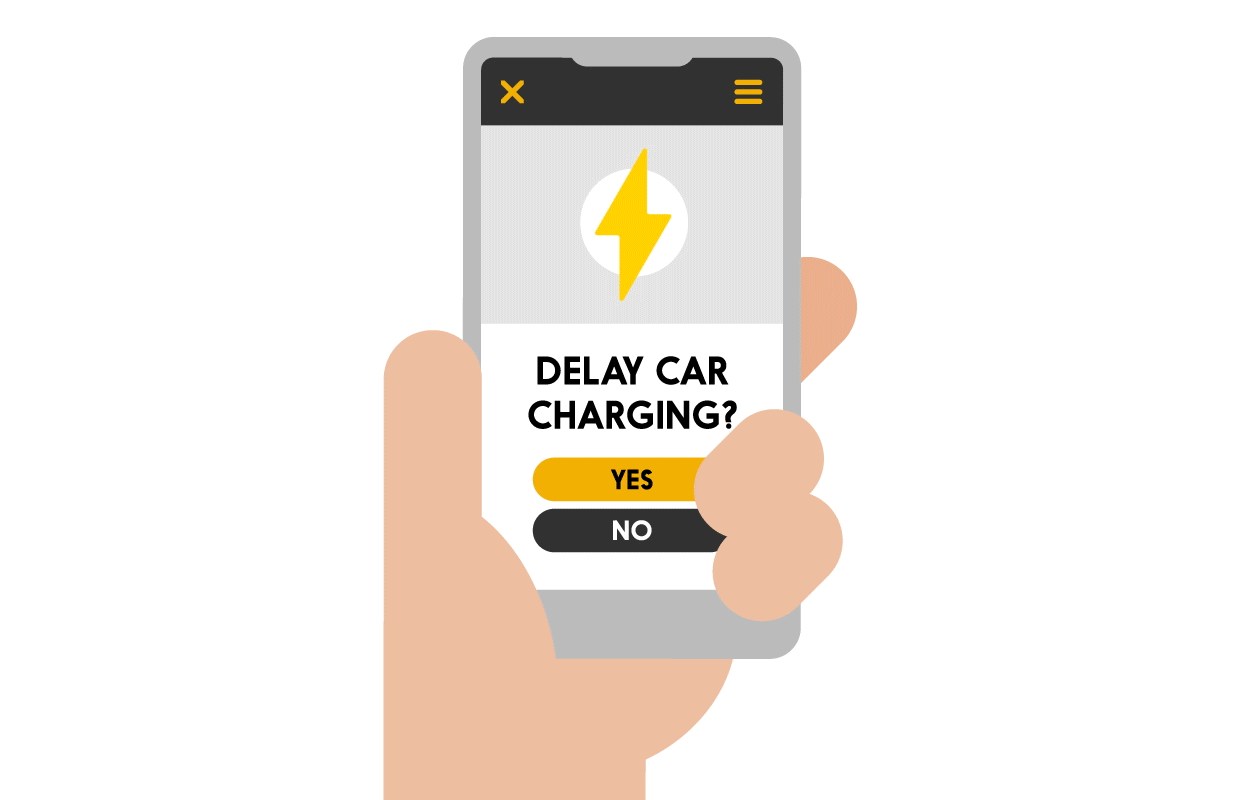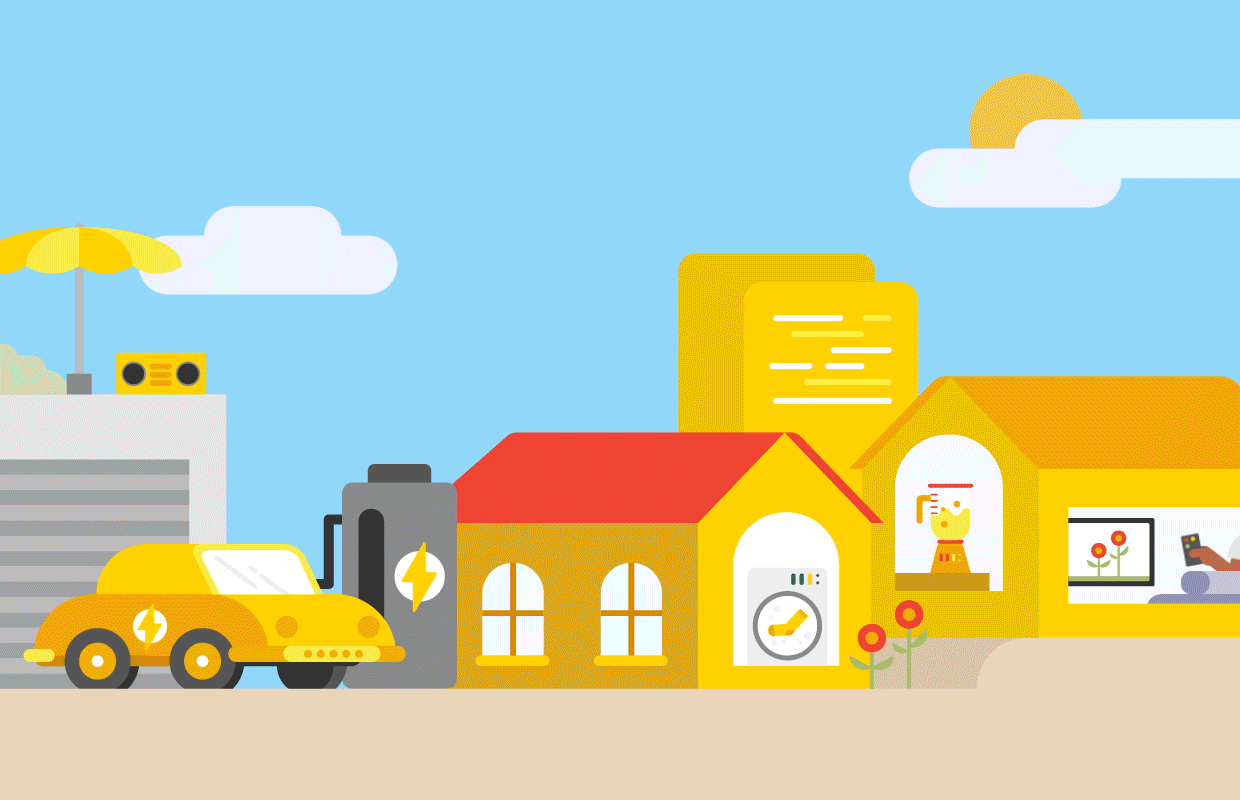Interac leverages its payment platforms in a new and innovative way, creating a win for a green-power utility
Picture yourself a few years from now. It’s after work, and you’re pulling into the driveway in your electric car. You’re about to plug it into the charging outlet when an app pings you with a notification.
It’s asking: Would you be willing to wait until the middle of the night to recharge your vehicle? This will accomplish two things: First, you’ll reduce the demand on your local power grid, which relies on solar energy. Second, in exchange for agreeing, you’ll receive (for the sake of this example) $5, which will be instantly available to you via an Interac e-Transfer.

Since you don’t plan to drive again until the next morning, you accept. It’s a bonus for you, a help to your energy provider — and, in the big picture, a win for the environment, because it helps make renewable power more financially viable for everyone.
For a group of homeowners, that scene played out in real life this spring, and Interac played a central role in making it happen.
Oscar Roque, AVP, Innovation, Research & Emerging Solutions for Interac, notes that the company’s platforms and products already allow millions of Canadians and Canadian businesses to make fast, secure financial transactions. In the future, he says, “We’ll need to develop even more ways to work and transact with each other in harmony.”
As the world looks for ways to combat climate change, the good news is that two key pieces of our arsenal — renewable energy generation, and low- or zero-emission vehicles and devices — are proliferating. The challenge? Co-ordinating these resources in real time so that electricity can be generated and distributed efficiently.
In a three-month pilot project earlier this year, Interac partnered with Alectra Utilities and IBM to test a potential solution — one that involved “real consumers, real solar panels, real batteries, real electric vehicles and real money,” Roque says.

Here’s how it worked: A small test group of Alectra customers — all of whom have solar panels, electric home batteries and/or electric vehicles — downloaded an app that offered incentives to generate or consume power at certain times. If everyone followed the incentives, the efficiency of the grid would be optimized.
Consumers were offered “sparks” — or tokens that could be converted into Canadian dollars. Thanks to Interac e-Transfer Autodeposit, the rewards appeared right away in customers’ bank accounts.
The solution used IBM blockchain software to facilitate a secure communication system behind the scenes, which enabled the various parts of the network to talk to each other.

Roque spends much of his time exploring the potential of new technologies to deliver real-world benefits to Interac customers and stakeholders. For three years, he’s been working on evaluating concepts that make use of blockchain technology.
“We have to get a grip on how it could change our business,” he says. And among the blockchain projects Roque has seen, the Interac-Alectra-IBM partnership stands out as a “great use case.”
The way things typically work now, Roque explains, consumers who have solar panels can receive incentives for sharing their surplus power — but the bonuses arrive relatively slowly, in the form of credits on their energy bills. Blockchain allowed the pilot-project homeowners to receive incentives instantly and conveniently. It also created a verifiable, auditable data trail for each bit of energy produced and “spark” awarded.
At Interac, Roque says, “We have a real-time payment platform. That allows you to move money quickly and conveniently. In this case, once the money is transferred, people can use Interac Debit, Interac Flash, to make a purchase at one of the nearly half million businesses on the Interac network.” With the right encouragement, the project partners learned, homeowners could be incentivized to follow energy-efficient behaviour patterns — a discovery that could have huge implications if scaled up and introduced across Canada.
Looking past the energy sector, Roque believes the project demonstrates the potential of blockchain-based partnerships to deliver wins in other realms — financial services, health care, and beyond. Roque believes Interac, with its long history of bringing various stakeholders together to put new technologies into daily use, is well-poised to facilitate these partnerships.
“For 35 years, we have governed a number of different platforms,” Roque says. “From an innovation perspective, we think: How do you actually leverage those platforms, services, and our governance expertise to do more?”



